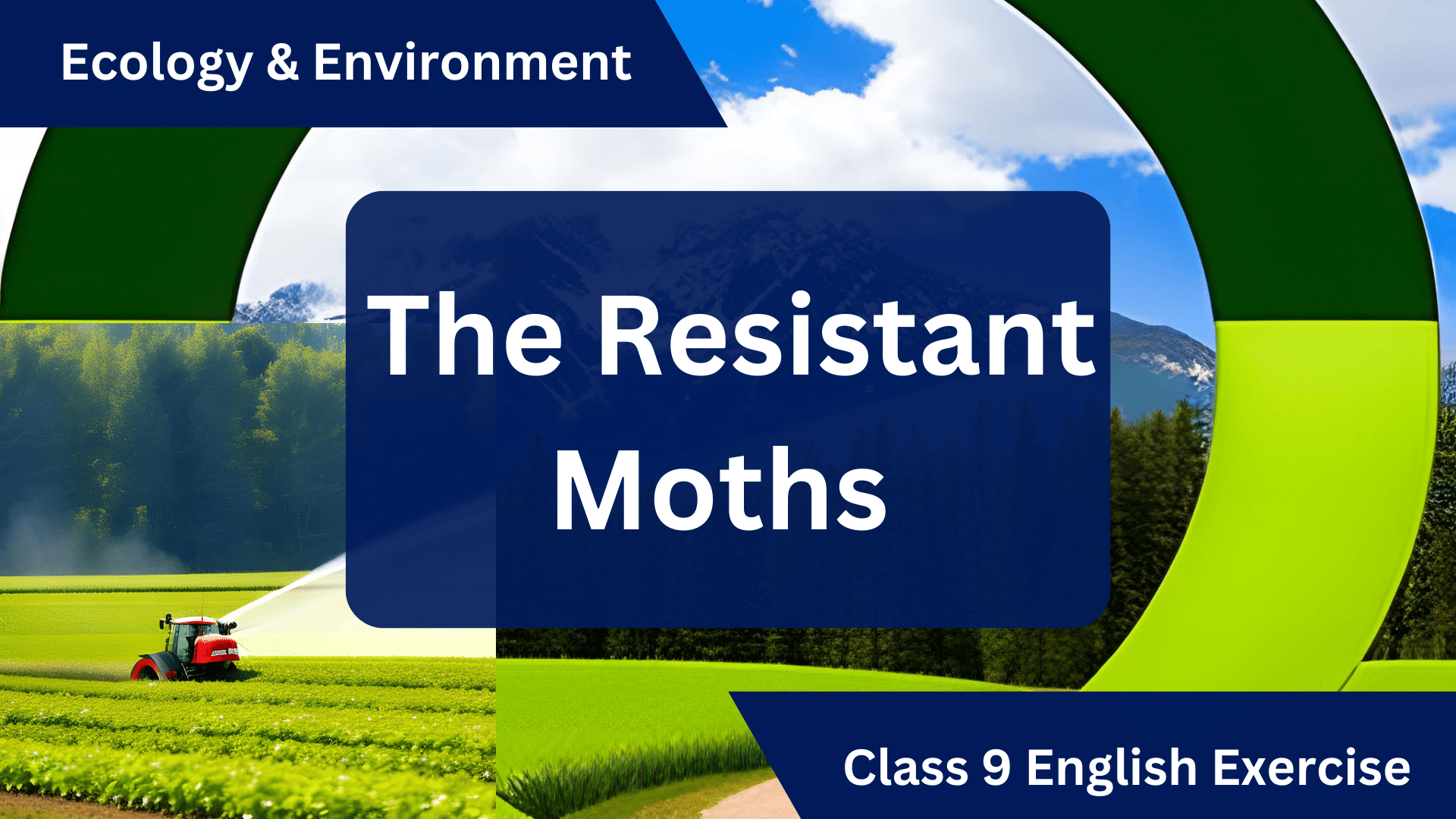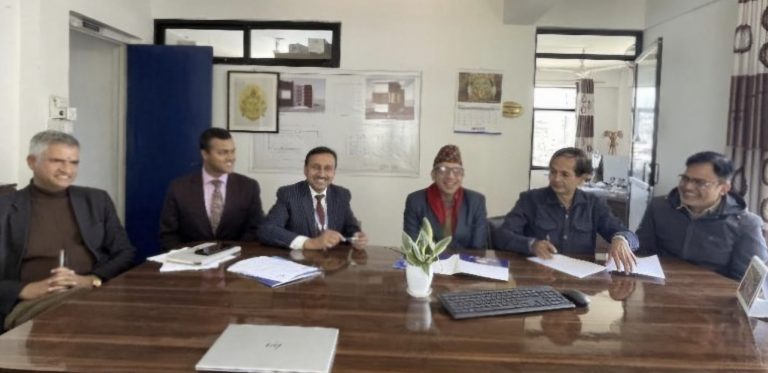The Resistant Moths
A. Use the correct words from the box below to complete the following sentences.
a. As responsible citizens, it is our duty to combat all social evils.
b. The whole town is suffering from the new plague of rats.
c. The minister’s opinion has created avalanche of controversy.
d. He got a nasty cut above his eye in the accident.
e. Some animals do not have a natural predator.
f. Mosquitoes seem to have become resistant to the toughest insecticides.
g. He is in despair due to all the failures in business.
B. The following words also refer to different styles of eating. Use a dictionary to find their meanings.
a. munch – to eat something steadily and noisily
b. nibble – to take small bites of something, especially food
c. gobble – to eat something very fast
d. gnaw – to keep chewing something hard
e. swallow – to make food, drink, etc. go down your throat into your stomach
C. Write whether the following sentences are True or False.
a. The first use of pesticides caused further problems to the farmers. ⇒ True
b. The shopkeepers made the farmers buy many pesticides. ⇒ False
c. Mahendra Yadav admits that the farmers used chemicals carelessly. ⇒ True
d. The pesticides not only killed the pests but also increased the fertility of the land. ⇒ False
e. Mahendra Yadav expects that the moths will go away one day. ⇒ True
D. Answer the following questions.
a. Why do you think Mahendra Yadav says “These insects will eat us alive”?
⇒ I think Mahendra Yadav says “These insects will eat us alive” because his fields have been swamped by a strange new plague of moths.
b. What did the farmers hope when they bought the pesticides for the first time?
⇒ The farmers hoped pesticides would kill the insects in their field and soon make them rich when they bought the pesticides for the first time.
c. What was the ‘nasty surprise’ for the farmers?
⇒ The ‘nasty surprise’ for the farmers was that despite the mixture of powerful chemicals on the potatoes, a few moths survived.
d. Find different words in the text that refer to the pesticide and the moth.
pesticide – poisons
moth- pests
e. Do you think that Mahendra Yadav has made a wise decision at the end? Why?
Yes, I think that Mahendra Yadav has made a wise decision at the end because he is letting some of his land lie fallow and changing the irrigation system in the hope that the moths will go away.
E. Why is the use of pesticides harmful to both people and the environment? What could be a good alternative to pesticides?
Pesticides have become deeply embedded within our agricultural system, playing a crucial role. Despite their intended purpose of eradicating specific pests, a significant portion of these chemicals inevitably veers off course, affecting unintended targets. Excessive pesticide usage poses a threat to non-target species as well. Through runoff and pesticide drift, these substances find their way into far-flung aquatic habitats, grazing lands, human settlements, and untouched regions, resulting in adverse consequences for both people and the environment. Embracing integrated pest management and sustainable agricultural practices like polyculture offer more viable alternatives to the excessive reliance on pesticides.
Grammar II
A. Complete the sentences with the correct form of the verbs given in the brackets.
a. If we hurry, we will get there in time. (get)
b. I won’t go to the doctor unless the pain increases (increase)
c. If you spit in a public place, you will get. into trouble. (get)
d. We will go for a picnic tomorrow if the weather stays nice. (go)
e. Everyone will believe you if you tell them the truth. (believe)
f. If he doesn’t wake up, he won’t get to work on time. (not wake)
g. If the baby is a boy, I’ll call him Nitesh. (be)
h. You can cause an accident if you drive so carelessly. (drive)
i. Unless she calls the ambulance immediately, her father may die. (call)
j. If you try harder, you will succeed in your exams. (succeed)
B. Complete the following sentences with suitable endings.
If you are hungry, ………………………….. .
get some food from the restaurant
If he runs fast, ……………………………….. .
he may catch the bus
They will win the match if ………………………………. .
they play well
If you phone him, ………………………………. .
he will help you
If Mira fails the exam, ………………………….. .
her father will scold her
Manashi will be promoted to grade ten if ………………………… .
he passes the exam
Writing – II
Write a letter to the editor of a local newspaper highlighting the importance of natural resources in Nepal, and ways of preserving them.
Pokhara
26th June 2023
The Editor
The Rising Nepal
Kathmandu, Nepal
Dear Editor,
I am writing to highlight the utmost importance of Nepal’s natural resources and to advocate for their preservation for the betterment of our society and the environment. Nepal is blessed with abundant natural resources, ranging from pristine forests and diverse wildlife to majestic mountains and powerful rivers. These resources not only contribute to our economic growth but also play a crucial role in maintaining ecological balance and ensuring the well-being of present and future generations.
First and foremost, Nepal’s rich forests are vital for our survival. They provide us with clean air, help mitigate climate change by absorbing carbon dioxide, and serve as habitats for countless species of plants and animals. Forests also play a significant role in soil conservation, preventing erosion, and maintaining water quality. It is imperative that we prioritize sustainable forestry practices, such as afforestation and reforestation initiatives, to counter deforestation and ensure the long-term health of our forests.
Furthermore, Nepal’s towering mountains, including the iconic Himalayas, are not only a source of immense natural beauty but also attract millions of tourists from around the world. These mountains support diverse ecosystems, harbor rare and endangered species, and provide critical freshwater resources through their glaciers and rivers. Preserving these delicate ecosystems and adopting responsible tourism practices are essential for the conservation of our mountains and the communities that depend on them.
Additionally, Nepal’s rivers are the lifeblood of our nation, providing water for agriculture, hydropower generation, and sustaining aquatic life. It is crucial that we prioritize the responsible management of our water resources, ensuring equitable access and promoting efficient and sustainable use. Implementing comprehensive water resource management plans, emphasizing conservation measures, and adopting modern irrigation techniques will help us safeguard this invaluable resource.
To effectively preserve our natural resources, we must also address the issue of pollution. Air and water pollution pose significant threats to our ecosystems, public health, and the overall well-being of our citizens. Implementing and enforcing strict environmental regulations, promoting clean energy alternatives, and raising public awareness about the importance of responsible waste management are vital steps towards combating pollution and protecting our natural resources.
Education and awareness play a pivotal role in fostering a culture of environmental stewardship. We must prioritize environmental education in our schools and communities to instil a sense of responsibility and respect for nature among our citizens. By promoting sustainable practices and engaging in eco-friendly initiatives, we can collectively contribute to the preservation of our natural resources.
In conclusion, Nepal’s natural resources are invaluable assets that need to be protected and managed sustainably. By preserving our forests, mountains, and rivers, and addressing pollution, we can ensure a sustainable future for generations to come. Let us join hands and work towards the conservation and responsible use of our natural resources, embracing our role as custodians of this beautiful land we call home.
Yours faithfully,
Sanju Nepal










